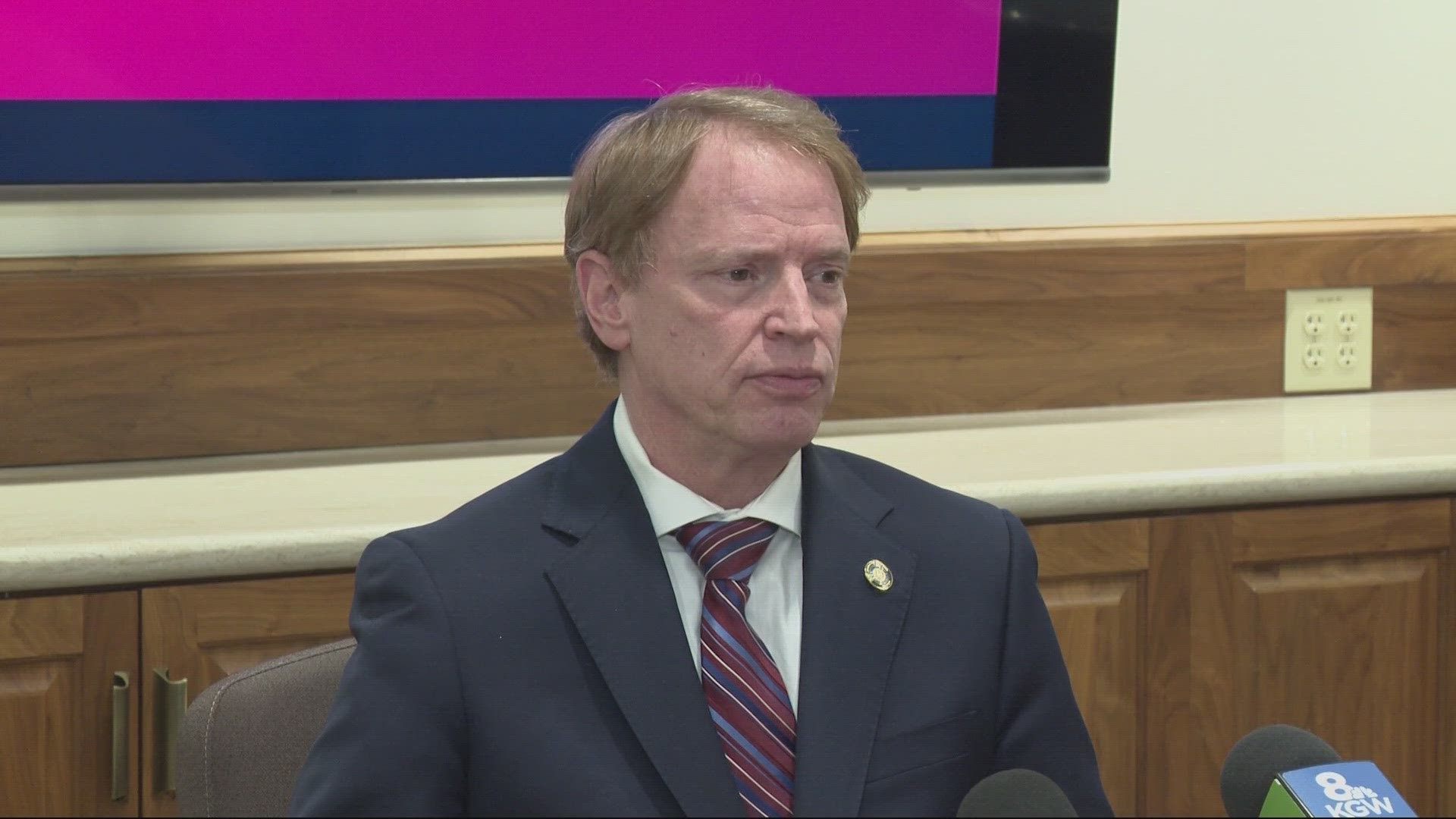SALEM, Ore. — In a 21-8 vote, the Oregon Senate on Friday approved a bill rolling back the drug decriminalization portion of Measure 110. Having already passed the state House, the bill only awaits Gov. Tina Kotek's signature before it becomes law.
Recriminalization is just one part of House Bill 4002, which makes sweeping changes to Oregon's drug and addiction policies. While the bill declares an emergency, meaning it will take effect immediately upon being signed into law, it stipulates that recriminalization won't begin until Sept. 1 — giving counties and cities time to prepare.
Democrats, who brought the original version of the bill before incorporating demands from across the aisle, called it a way to give treatment providers and law enforcement the tools to save lives.
“We must take action. The drug crisis is killing Oregonians and threatening the health and safety of our communities," said Senate Majority Leader Kate Lieber (D-Beaverton), co-chair of the Joint Committee on Addiction and Community Safety Response. "The Oregon Drug Intervention Plan is a treatment-focused approach that gives providers and law enforcement the tools they need to keep people safe and save lives.”
Under the compromise that lawmakers on that committee hammered out in recent weeks, HB 4002 creates a new "drug enforcement misdemeanor" for simple drug possession. A person convicted of the crime would receive, at maximum, 18 months probation. A judge can sanction violations of that probation with up to 30 days in jail, or they can revoke probation for more serious breaches and hand down a jail term of up to six months.
Someone serving a jail term related to a drug misdemeanor can request release in order to attend treatment — inpatient or outpatient — but if they again violate the terms of their release, they can be taken back to jail to serve out the remainder of that six-month term.
“Republicans stand united with Oregonians who overwhelmingly believe we deserve better than Measure 110," said Senate Republican Leader Tim Knopp (R-Bend) in a statement. "In this historic vote to reimpose criminal penalties for drug possession, we are making it clear that Oregon is no longer a drug tourism state. Though lawmakers will have much more to do in future sessions to continue making progress on the fentanyl-fueled drug overdose and addiction crisis facing our state, I was proud to stand on the right side of history by casting my vote in favor for HB 4002."
Another feature of the bill, one that Democrats initially wanted to be the basis of HB 4002's changes to Measure 110, would empower the creation of "deflection programs." Law enforcement agencies and county prosecutors can set up these programs as an alternative to an arrest or prosecution for people caught on drug misdemeanors, instead connecting them directly with behavioral health and treatment programs.
But under the final version of HB 4002, deflection programs are purely optional. While a majority of Oregon counties have expressed interest in creating them, some counties are determined to opt out — and deflection programs could differ significantly by county.
Even without a deflection program, someone convicted of a drug misdemeanor will be able to get their criminal record expunged or sealed if they successfully complete the terms of their sentence.
Several Senators who spoke in opposition to the bill Friday, and even some who voted in favor, spoke somberly about the state's longtime lack of investment in behavioral health infrastructure and its overwhelmed public defense system — both of which are ill-equipped to take on an influx of criminal defendants suffering from addiction.
Some called HB 4002 a return to the war on drugs, which has historically had a disproportionate impact on communities of color.
Drug recriminalization makes up the core of HB 4002, but there are a number of other provisions in the lengthy bill. It would also change state law in response to court decisions that law enforcement officials claim have made it more difficult to prove that someone is dealing drugs, and increase jail sentences for people who sell drugs near parks, treatment centers and homeless shelters.
The bill includes a number of other provisions to either provide funding or study gaps in access to treatment, especially for Oregon youth. It also attempts to increase access to medication that can treat opioid use disorders, and expands welfare holds for mental health or intoxication from 48 to 72 hours.
A companion bill, House Bill 5204, would provide $211 million for "shovel-ready" projects meant to expand the behavioral health workforce and access to treatment, education and prevention programs, drug courts, the deflection programs and public defenders. It passed both the House and Senate with overwhelming support.
This is a developing story and will be updated with more details as they emerge.

